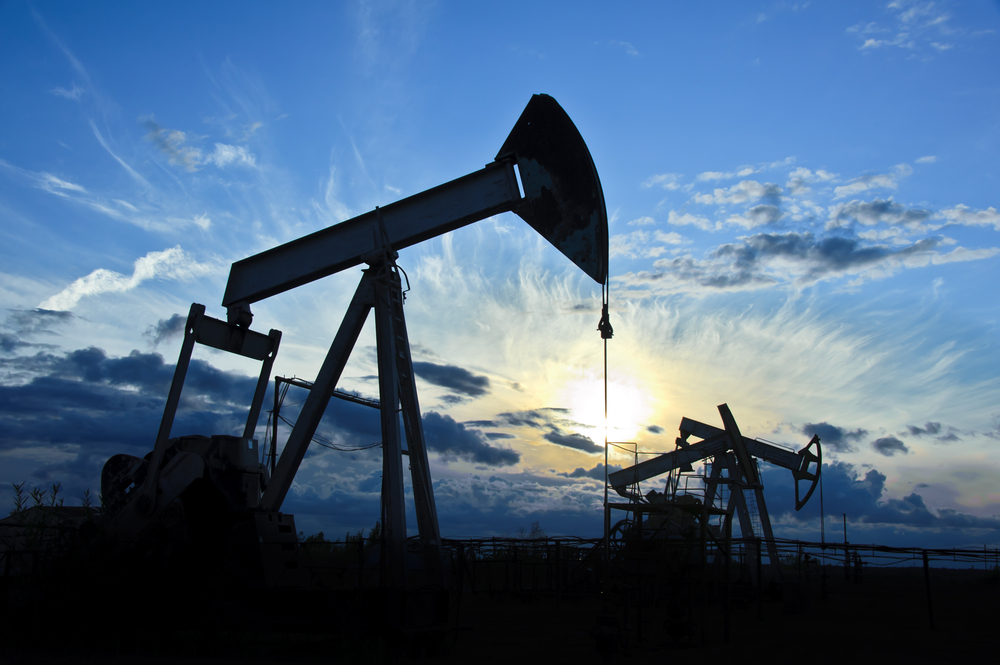Drilling rig counts for the week were up slightly nationwide and down slightly here at home. Independent Oil & Gas Service reported 12 active rigs in eastern Kansas, up one, but the count west of Wichita is down two at 25 active rigs. Drilling is underway at sites in Barton and Ellis County, and about to commence at a third site in Stafford County. Baker Hughes reported 978 active drilling rigs, an increase of one oil rig and two seeking natural gas.
There are 32 new permits for drilling at new locations across Kansas this week, 20 east of Wichita and 12 out west, for a year-to-date total of 221. Barton and Stafford County each report one new permit.
Independent Oil & Gas Service reports 22 new well completions statewide, 11 east of Wichita, 11 in western Kansas, for a total of 249 so far this year.
The government reported last week on the impact of new congressional mandates calling for the sale of more than 100 million barrels of crude oil from the Strategic Petroleum Reserve. Together the new budget and tax-cut laws call for the sale of 107 million barrels of crude between the years 2022 and 2027. Three bills enacted earlier already call for the sale of 149 million barrels starting last year and continuing through 2025. When you add it up, the S.P.R. could decline by about 40% in the coming decade, but the Energy Information Administration says it will still meet its original mandate to cover interruptions in petroleum imports.
The state of Alaska is about $806 million in debt to its oil and gas companies, and is considering a billion-dollar loan to pay them off. The state promised billions of dollars in tax credits to smaller oil and gas companies between 2003 and 2017. But when petroleum prices plunged, the state could no longer afford the program. Lawmakers are considering a plan to borrow the funds to pay off those operators who agree to accept up to ten percent less than what they’re owed.
The Trump administration announced the largest oil and gas offshore auction in U.S. history on March 21 for areas in federal waters off the Gulf Coast. The announcement comes less than a year after a similar sale yielded little corporate interest.
A proposed ballot measure in North Dakota seeking to raise that state’s oil taxes will not move forward this year. A spokesman says they don’t have the funds to face off against fierce and well-funded opposition. The Bismarck Tribune quotes a former state lawmaker who believes the measure will be back during the next legislative session or in a future election.
Russia remained the top crude oil supplier to China in January, according to date from Chinese customers officials. Reuters reported Russian supplies rose 23.4 percent from a year earlier, beginning 2018 on a strong note after the start-up of an expanded trans-Siberia pipeline.
If the frontrunner in Mexico’s presidential race takes office it could spell an important shakeup for US refiners. His energy adviser tells Reuters he would like to see Mexico refine and consume its own fuels, rather than exporting the crude and importing the fuel. And he’d like to accomplish that in the next three years. Mexico is currently the largest foreign market for US refiners, consuming about 808,000 barrels of gasoline and diesel per day last year.
Many critics have raised concerns about Venezuela’s cryptocurrency ambitions, but its first day pre-sale was apparently very popular. President Nicolas Maduro said on Twitter that Venezuela’s petro token raised more than $735 million, in Chinese yuan, in its first day. Maduro has admitted in public that the petro will serve as a means for Venezuela to circumvent sanctions imposed by the US and the European Union.

